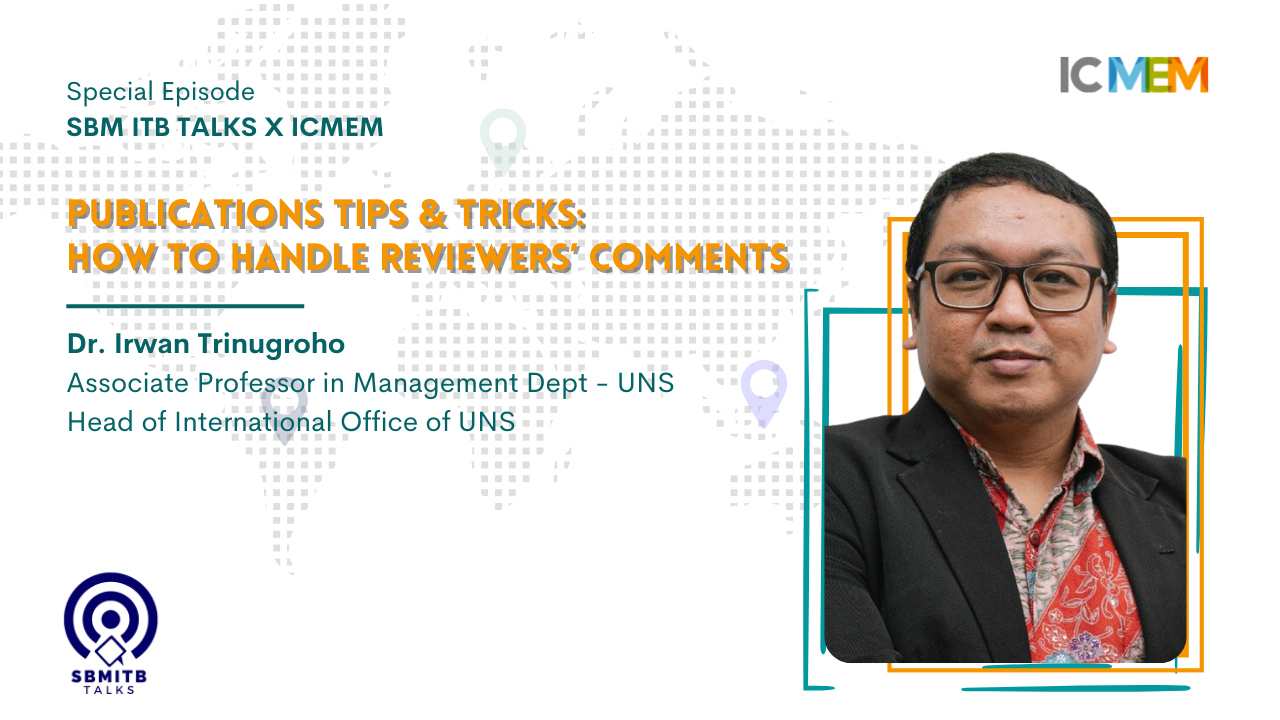Research and publication are important activities as an academician. College students especially postgraduates and early-career faculty members often encounter various difficulties, especially in writing their research to be published in scientific journals both national and international. In this episode, SBM ITB Talks in collaboration with ICMEM 2021 will discuss how to academic writing tips & tricks for publication purposes.
What does the editor look at from the paper submission review process?
The editor usually decided the paper desk rejected or continued to be reviewed are from severe factors, first, the editor looks into the technical issue such as the flow of paper, and the guidelines of the journal. The second point is the language used for the paper, and the last point is the issue of the paper is similar to the content of the journal. Because the competition of the journal is very hard, the editor usually looking up to those points mentioned.
What possible review journal to get a rejection?
There is a possible review to get rejected when submitting a publication. The first thing we should be aware of to avoid journal rejection is knowing the contribution of the paper. The reviewer might see the significant contribution of the paper, is the paper added a new value to the body of knowledge? The paper with no significant contribution is most likely to be rejected.
The author must look at the most recent situation regarding unique phenomenon to be discussed and enrich the body of knowledge, make sure the hypothesis is generated for theoretical generation from the body of knowledge, make the methodology clear to define and resolve academic paper based on empirical findings.
Consistency between those factors is more likely reviewer will give chance to be reviewed in the next cycle.
How do authors identify whether it is addressable, or it is better to be withdrawn?
As we know, this is an important issue from the author’s perspective. Sometimes the review from the reviewer is very tough and asks many things such as adding data sets, doing certain methodology, and sometimes it is hard to deal with reviewer feedback.
Firstly, if the author can revise the feedback, it can be continued to the next review process, but if the reviewer feedback and suggestion is too difficult and mandatory to be done, maybe the author can withdraw their manuscript. The author can say to the reviewer that we cannot fulfill the suggestion due to a particular issue.
What is the favorable or acceptable response when addressing revisions?
Be prepared, the author should assume they will be dealing with the hostile reviewer. So, we need to be serious and careful in submitting the paper, because the probability to get rejected is high. Second, when receiving the review from the reviewer, we would like to mention their suggestion while replying to the review, for example, if the reviewer asking for the dataset and we might take time to collect or it is costly, we can explain the condition to our reviewer. And lastly, submit the review as soon as possible, because if it is taking a long time, the reviewer might not review your paper again.
Remember, there is no guarantee your paper will be accepted after dealing with the review process. So, focus on your paper quality and follow your review process. Good luck with your publication.




